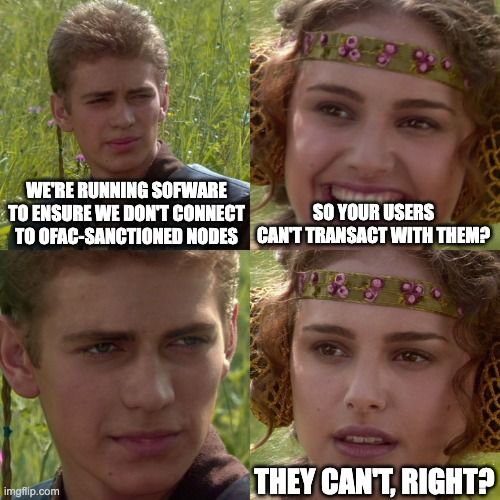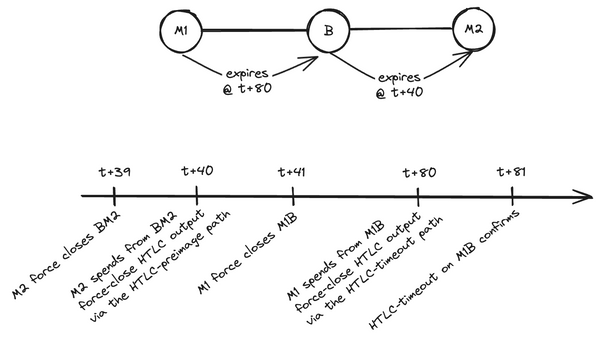Latest Strikes 52 - August 28th-September 3rd 2023

Welcome to the 52nd issue of Latest Strikes, your weekly recap of all the news in the Lightning world, brought to you by LN Markets! This one is a bit special for me, because 52 means it's been exactly a year since I first started writing those. Verba volant, scripta manent, fulgur ictum.
Ecosystem
Kagi Search Engine Accepts Lightning Payments
Kagi, a paid search engine which seems to actually be good, is now accepting Lightning as a payment method. Kagi shows no ad, and hence lists search results solely based on relevance. But if, for once, you're not the product, that means you gotta pay for the service.
However, as Kagi themselves point out in their FAQ, linking your internet search queries with your credit card should be an uneasy feeling. And while Kagi promises to not log search queries, they've also decided to look after more private payment methods.
The search engine hence now accepts on-chain and Lightning payments, via OpenNode. Their blog post highlights that the payment processor had to be KYC-free to reach the goal of more private payments (bye bye BitPay), and OpenNode has the additional perk of enabling them to automatically convert part of the Bitcoin payments into fiat to cover their fiat expenses.
Now the next step is probably to completely get rid of the account. Indeed, Kagi explains that the need for an account on their search engine exists "only because it is a paid service which requires an account for the transaction". With Lightning, you could easily pay per search, without any additional UX hurdle. Connect an extension such as Alby, setup a budget, and now each search will be paid for transparently, without any user interaction, until you reach the budget. Would be quite nice, wouldn't it?
Robosats Node Facing Issues
The Robosats Lightning node (and others) met some issues, starting a few weeks ago, where some deadlock could occur when connecting to peers, rendering the node unusable. A quick fix has been pushed by the Lightning Labs team. In the meantime, a new Robosats node has been setup, and operations are expected to resume promptly.
Fountain Adds Boosts From External Wallet Too
Following course with Geyser, Wavlake, StackerNews and more, Fountain now allows you to send sats to a podcast without having an account on the platform. Just press the boost button, enter a display name, the amount and your comment, and pay the invoice the website shows you with any wallet you like.
In other news, StackerNews also enhanced their just-in-time funding mechanism, where if you don't have enough funds to tip a post you can just pay an invoice, and the deposited funds will be used for the tip. Previously the funds reaching StackerNews' node and the tip itself were not atomic, meaning in some edge cases you could pay the invoice but the tip would not happen, which could be problematic, especially if tipping without an account. Now StackerNews uses short-lived HODL invoices to ensure atomicity between the payment and the action that is paid-for (e.g. tipping).
As I've said before, Lightning allows to get rid of accounts in many scenarii, but especially when it involves an anonymous sender giving some money to a receiver without necessity for identification. So we might as well use it!
Data Vending Machines
Remember the Lightning x AI convergence we briefly explored in Latest Strikes #44? There's now a nice web user interface at vendata.io where you can create new jobs, which various agents (a.k.a Data Vending Machines, DVMs) will pickup and propose their rates for. Typical jobs include prompt-based image generation, summarizing or translating text, curation, etc.
Interestingly, once a job offer is posted, it is there for everyone to see, alongside with every quote submitted by DVMs and, if a quote was paid, the corresponding result produced by the machine. For example, this means that instead of every Nostr client translating the same note over and over again, it can be translated once by a DVM, and the result be accessible to all other clients, as it is nothing but yet another Nostr note. Or that since Leo paid for some curated content discovery, we can all enjoy the result for free.
There's still the potential problem of knowing which machines are good or bad, since you need to pay to see the result. But the fact that results are public once they are paid for will probably be instrumental in more easily sorting out which DVMs are best at what (and which are just not good at all). And maybe curate them using another DVM?
Wallets & Tools
Mutiny Update
Mutiny Wallet got a new substantial release last week, notably bringing the Android app to parity (feature-wise) with the web-based one, as well as improvements to load times and network graph syncing (the graph could be incomplete due to missing gossip data (i.e. where channels are announced), frequently leading to no route being found for a payment).
The team also announced that their next target is enhancements to the way multipath payments are handled, as well as more reliable pathfinding and integration of additional LSPs such as Zeus' Olympus or C=.
Alby Developer Portal
The Alby team published a brand new developer portal, where developers can quickly access the many tools put forth by Alby, such as the Alby Wallet API or their Lightning and Nostr packages. This new portal puts everything in one place, with graphical interfaces for generating new access token or creating new webhooks with with your Alby account. This hence make it easier to interact with Alby's custodial account, be it to simply setup some automation on your own account, or to integrate the Alby Wallet into your app.
Indeed, thanks to Alby's Wallet API, developers can securely connect to their users existing custodial Alby account, instead of having them create a new one inside their app. The developer of the Lume Nostr client, for example, stated their interest for this "bring your own wallet" mechanism.
Self-Custodial Synthetic Stablecoins
10101 released self-custodial synthetic stablecoins in their iOS app. Synthetic stablecoins, also referred to as stablesats, are a way of creating synthetic fiat (e.g. dollars) by shorting the price of Bitcoin with respect to fiat while simultaneously holding Bitcoin. They usually require using a centralized, custodian derivatives platform to perform the short - that's how Blink does it, and so how us at LN Markets do it as well, only we're the derivatives platform.
10101, on the other hand, uses DLCs on the Lightning Network to achieve the same. DLCs (Discreet Log Contracts) are Bitcoin "smart contracts" where the result of an event, provided by an oracle, determines how the funds can be spent -- and hence who can claim them. By holding Bitcoin while shorting its price in USD in a DLC, you end up with a stable balance in USD without any counterparty risk, since you don't need to give up custody to trade in a DLC.
Machankura
Machankura added support for on-chain withdrawals, using "additive batching" to spend from their multi-signature wallet that doesn't look like one!
I know, that was a lot of words, so let's see what's going on. For starters, Machankura is a system that allows people living in 7 African countries to send and receive Bitcoin over Lightning with nothing but a feature phone. It leverages the USSD protocol, so no internet is required. However, it is of course completely custodial, and users are inherently trusting the people behind Machankura.
This trust requirement can be reduced by using a threshold multisignature wallet to store users funds, meaning that several Machankura "administrators" would need to go rogue to be able to steal the funds. That's what Machankura implemented, using Taproot (and hence Schnorr signatures) to save on fees and make the multisig look like just any other wallet.
On top of that, the service now supports on-chain withdrawals, and performs them using an "additive batching" mechanism: while a transaction spending from the multisig is still unconfirmed, any new withdrawal request will be processed by replacing the initial unconfirmed transaction with a new, bigger one. Another fee saver!
Electrum Security Update
There's an Electrum security upgrade (version 4.4.6) fixing several Lightning-related security issues. It is strongly advised to the users of Electrum's Lightning capabilities to update asap. The details of the vulnerabilities will be disclosed in approximately one week.
Spec & Implems
LND RC2 Tagged
The second release candidate for the version 0.17.0 of LND as been tagged, mainly fixing bugs (including the one affecting Robosats) and improving the documentation on top of what was already present in the first release candidate.
Closing Bit
Midis bleus d'été
Le temps étire son dos
Vers l'instant suivant





